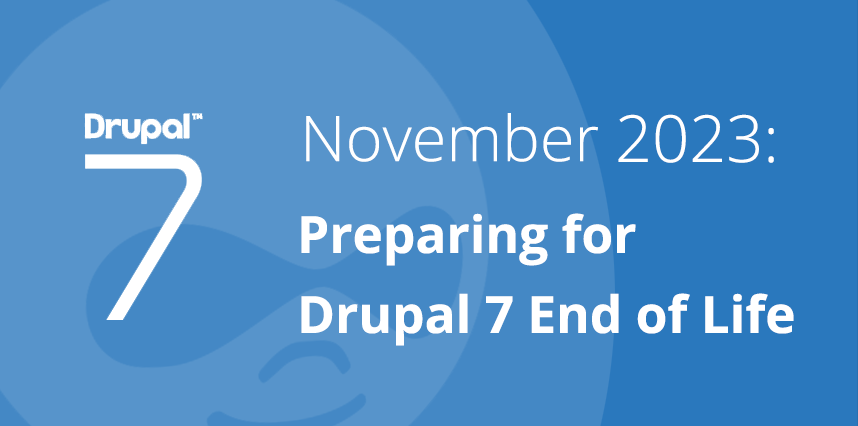
(Last updated: Feb 2022): We previously posted about the release of Drupal 9 and discussed the Drupal 7 platform reaching End of Life (EOL) and going out of official support in the future.
Originally set for November 2021, the date was later extended to November 2022 in light of the impact that COVID-19 has had on many organisations' priorities and budgets during 2020. In February 2022, it was then further announced that the End of Life date has been extended again until at least November 2023.
While the latest time extension gives Drupal 7 site owners more time to plan for the future, it is still highly recommended that sites are moved to the latest version of the Drupal platform - currently Drupal 9 - when time and budgets allow.
To support our clients on the topic - as well as anyone else wanting to understand more about Drupal 7 EOL - we've put together a list of FAQs about Drupal 7's End of Life.
These aim to answer the most common questions that many Drupal 7 site owners have about the platform's EOL. They also provide advice for those who are keen to plan ahead for the move to Drupal 9 ahead of the end of 2023 as well as explaining the expected situation for those who are unlikely to be able to move away from Drupal 7 by the time it reaches End of Life.
The FAQs page can be found here. We'll continue to update and add to it as more information is available and/or as more questions arise.
Should you want to find out more about Drupal 7 End of Life, what it means for your site and how we might be able to help, please contact us for an informal discussion or, for existing Adaptive clients, speak to your Account Manager who will be more than happy to answer any further questions you might have.

